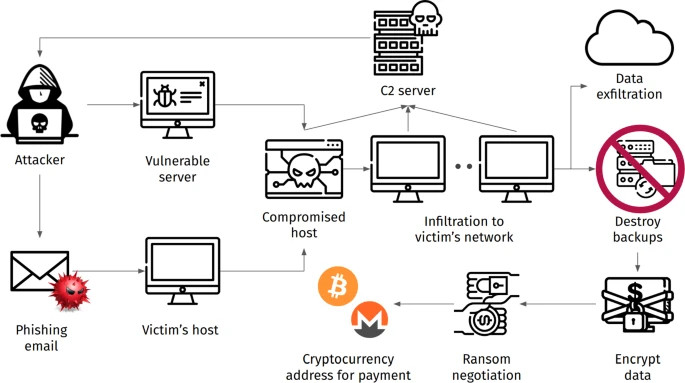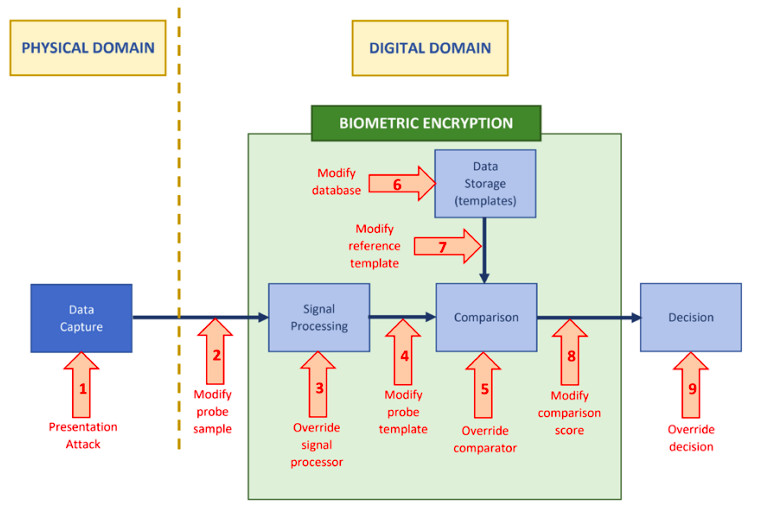Critical Alert from Europol on Cryptocurrency Mining Potentially Serving as a Veil for Money Laundering and Organized Crime
In Brief
The European enforcement agency Europol has published its comprehensive analysis on encryption, revealing serious concerns regarding the potential misuse of cryptocurrency mining by illicit actors.
Within the European Union, the law enforcement body has articulated its concerns regarding the crypto mining industry being hijacked by organized crime, as evidenced in its first thorough examination of encryption technologies. Europol This report, created in collaboration with various EU agencies, delves into cutting-edge technologies and their implications for encryption, providing a stark assessment of the evolving challenges faced by investigators in law enforcement. The 56-page study Europol's primary assertion is that different forms of cryptocurrency mining have become attractive avenues for a multitude of illegal activities conducted by organized crime syndicates. The agency points out that miners increasingly find themselves targeted by fraudulent schemes, which exploit everything from masking dirty profits to laundering money.
📣 Just released: a fresh analysis on encryption titled 'Balancing Security and Privacy'.
The findings illuminate how the expansive scale and energy-demanding nature of mining can effectively disguise the origin of illicit funds. By channeling stolen money into mining operations, offenders can legitimize their fortunes, depicting them as revenues from intense cryptocurrency production. Interestingly, profitability does not always seem paramount; Europol has indicated that certain mining ventures merely exist as a cover for illegal gains, fueling worries that expansive mining farms could operate as sophisticated fronts for laundering activities.
Europol Identifies Crypto Mining as a Potential Facade for Criminal Conduct
Alarmingly, the research highlights mining pool schemes that have evolved into flagrant scams, swindling investors out of 'hundreds of millions of euros.' A notable example cited is the infamous situation in which fraudsters allegedly orchestrated a Ponzi scheme, falsely promising returns through non-existent mining pools.
Furthermore, Europol notes that law enforcement is aggressively pursuing botnets and malware employing 'cryptojacking' techniques—code aimed at hijacking computing resources to mine Bitcoin unlawfully. The document states, 'For more than five years, cybercriminals have leveraged botnet mining or cryptojacking to siphon off victims' bandwidth and processing capacity for cryptocurrency mining purposes.' BitClub Network case While a significant portion of the crypto community has long recognized the threats of cryptojacking, which can target anything from expansive cloud infrastructures to individual personal computers, Europol’s research corroborates that these activities remain a genuine issue that warrants vigilance.
Ultimately, the agency categorizes cryptocurrency mining as a potential disguise for various illicit activities, spanning from straightforward fraud to sophisticated money laundering. Their serious appraisal indicates that the mining sector is increasingly being exploited by unscrupulous individuals, evolving into a new refuge for illicit income sources. However, Europol's scrutiny extends beyond just mining within the cryptocurrency landscape. cryptojacking Report Raises Concerns on Privacy Coins and Mixing Services as Threats to Financial Transparency
The report articulates apprehensions regarding privacy-centric features in cryptocurrencies that could 'hinder tracing' the financial flow of criminals, thus going beyond just mining operations.
It highlights privacy coins—cryptocurrencies designed with enhanced encryption to obfuscate transactions, such as Grin, Zcash, and Monero—as potential instruments for laundering activities.
The text emphasizes that while Bitcoin continues to dominate the criminal underworld, emerging technologies, especially zero-knowledge proofs, 'can further complicate the visibility of cryptocurrency addresses, holdings, and transactions.'
International Journal of Information Security
Europol also shows concern towards tumblers or mixing services employed to obscure the trail of cryptocurrency funds. The study references a mixer that was sanctioned by authorities in the US for allegedly facilitating money laundering activities through its services. The report warns that such privacy-enhancing methods 'dramatically complicate tracing the origins of illicit cryptocurrency dealings for law enforcement agencies.' The central theme of the agency's findings is quite unambiguous: it asserts that advancements aimed at enhancing cryptocurrency users' privacy and anonymity will significantly obstruct any investigations into crypto-related criminal activities. The document puts a spotlight on a plethora of technologies, ranging from biometric systems and secure messaging applications to quantum computing and AI, illustrating how innovations in data protection could hinder legitimate digital scrutiny and evidence gathering.

Photo: Noteworthy Legal Rulings and Regulations Influencing Access to Encrypted Data
Europol’s findings outline the shifting legal landscape as legislators and judiciary grapple with laws related to encryption and law enforcement’s access to encrypted data. Tornado.cash is mentioned The agency commends the recent EU regulations on electronic evidence for streamlining cross-border procedures, enabling authorities to handle requests for digital evidence more swiftly. Nevertheless, it also sheds light on a lingering dilemma: the legislation consciously refrains from mandating service providers to compromise encryption or deliver unencrypted content.
In addition, Europol points out several court cases where the validity of evidence gathered through encrypted communications has been challenged. Nonetheless, rulings in nations like France, Germany, and Italy have illustrated that, provided the correct protocols are observed, such information can be deemed legitimately acquired.
A ruling from the European Court of Justice in April 2024 clarified the scenarios under which intercepted encrypted data can be required from any EU member state for use as evidence in judicial matters. As Europol notes, the ongoing political dilemma surrounding encryption persists, reinforcing the need for 'more constructive' dialogues between internet corporations, civil society, and government officials to advocate for solutions that uphold both security and privacy while allowing lawful data access.

Photo: Report on Encryption
One initiative mentioned involves the establishment of a new organization aimed at uniting various stakeholders to forge a collaborative strategic vision for law enforcement data accessibility and 'commonly accepted solutions.'
The report accentuates that technology is progressing at an unyielding rate, complicating the quest to balance data privacy rights with law enforcement's obligation to decrypt information and monitor illicit behaviors in digital spaces.
Europol's Report Reignites Ongoing Debate on 'Crypto-Privacy vs Lawful Access'
The persistent discourse regarding privacy rights versus law enforcement’s capability to uncover digital felonies has been reignited by Europol's study, even though it does not introduce particularly new themes. Advocates for privacy rights have long contended that imposing encryption backdoors or compelling companies to reconfigure their architectures for easier monitoring would ultimately create vulnerabilities ripe for exploitation by malevolent actors.
According to the paper, a significant Proponents of robust encryption and digital currency privacy argue that these elements are essential for safeguarding freedom, commerce, and human rights within the digital age. They note that any allowances for governmental surveillance would irreparably harm trust in a decentralized currency framework predicated on transparency and a resistance to censorship. Conversely, law enforcement bodies like Europol maintain that ensuring public safety amid a sharp rise in cyber-enabled crime necessitates certain lawful access capabilities, which must be utilized transparently and governed by judicial oversight.
As technology continually shapes the landscape of these deeply held convictions, simple resolutions seem elusive. The ongoing cat-and-mouse dynamic between encrypted systems and those seeking to monitor their contents is poised to intensify. This struggle is echoed in Europol's study, traversing numerous domains from messaging applications to blockchain technologies and biometrics, in addition to telecommunication services. High-Level Group by the EU in 2023 Indeed, this impasse may encapsulate the very challenge democratic nations face as they strive to maintain a careful equilibrium between security and individual privacy rights. The resolution of this crypto-privacy quandary in the coming years will necessitate ongoing legislative engagement, judicial examination, ethical scrutiny, and innovative technical solutions.
Whether the optimal path involves mandating companies to incorporate extraordinary legal access capabilities or legislating for unbreakable encryption remains contentious.
Europol Raises Alarm About Crypto Mining Potentially Being a Front for Money Laundering and Organized Crime - Metaverse Post
The law enforcement agency of the EU, Europol, has published an in-depth report that examines encryption issues, raising serious apprehensions about how cryptocurrency mining could be exploited by criminal entities.
Europol Raises Alarm About Crypto Mining Potentially Being a Front for Money Laundering and Organized Crime
FTC's Appeal to Block the Microsoft-Activision Merger Gets Rejected
Published: June 12, 2024, at 9:56 AM - Updated: June 12, 2024, at 9:56 AM
To enhance your experience in your native language, we sometimes utilize an automatic translation tool. Please be aware that automatic translations might not always be precise, so be sure to read carefully.
Europol, representing the law enforcement domain of the European Union, has rolled out its inaugural in-depth analysis focused on encryption, raising alarms over the misuse of cryptocurrency mining by criminal groups.
The law enforcement agency of the European Union, study by Europol has voiced concerns about the potential for the cryptocurrency mining industry to be manipulated by illegal actors, highlighted in its first extensive report on encryption.
Disclaimer
In line with the Trust Project guidelines This report, developed in collaboration with various EU agencies, investigates emerging technologies and their implications for encryption, presenting a stark examination of the evolving challenges faced by law enforcement.







